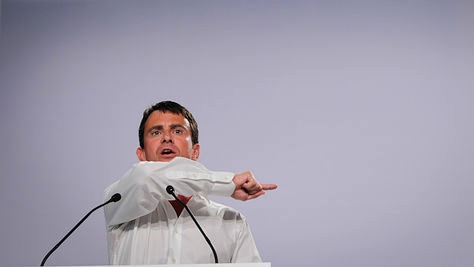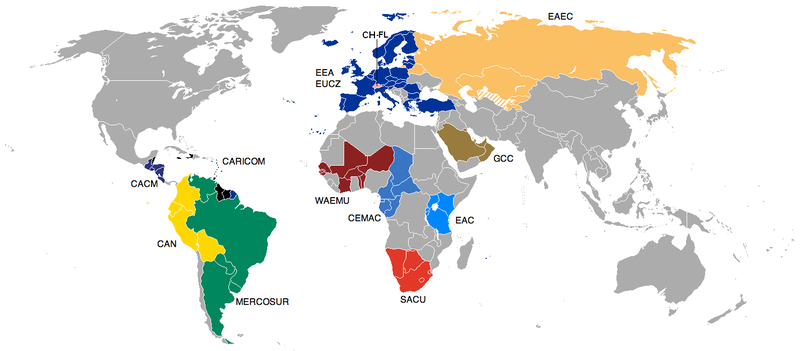In choosing Manuel Valls, the popular interior minister, as France’s new prime minister, French president François Hollande is taking a risk that elevating the most popular minister in his government will attract support from among the wider French electorate without alienating the leftist core of the Parti socialiste (PS, Socialist Party).![]()
Pivoting off the poor Socialist showing in last weekend’s nationwide municipal elections, Hollande’s cabinet reshuffle is a sign that he understands he has largely lost the trust of the French electorate in less than two years. Other ministers, including finance minister Pierre Moscovici, could also lose their jobs in a reshuffle to be announced later this week.
Prime minister Jean-Marc Ayrault resigned today after just 22 months on the job. LIke Hollande, Ayrault has become increasingly unpopular as the government has pursued aggressive measures to stabilize France’s budget, including tax increases and adjustments and cuts to France’s pension system — all in the face of a sluggish economy, a 10.8% unemployment rate and a greater crisis in confidence over France’s role within the European Union and the world.
In a short statement announcing Valls, Hollande pledged to continue pursing a payroll tax cut and additional pension and labor law reforms as part of a recent attempt to win support from the French business community, a series of reforms that Valls has enthusiastically promoted throughout his career. He also promised that Valls would lead a ‘combative government,’ which sounds like somewhat of an understatement in translation from a gouvernement de combat.
In light of Ayrault’s highly collaborative style, and Valls’s much more aggressive style, even the original French seems like an understatement.
But while the latest IFOP poll from mid-March gave Hollande a 23% approval rating (his highest, in fact, since last October) and Ayrault a 26% approval rating, Valls has an approval rating of 63%. That goes a long way in explaining why Hollande is replacing Ayrault with Valls today.
It’s not a choice without risks. Valls, a centrist with controversial views about the Roma and immigration, could divide the French left. If Hollande’s unpopularity continues, he could taint one of the few remaining popular figures within the Socialist Party. If Valls succeeds, he could supplant Hollande as the more attractive presidential candidate in 2017.
Continue reading Who is Manuel Valls? Meet France’s new prime minister

